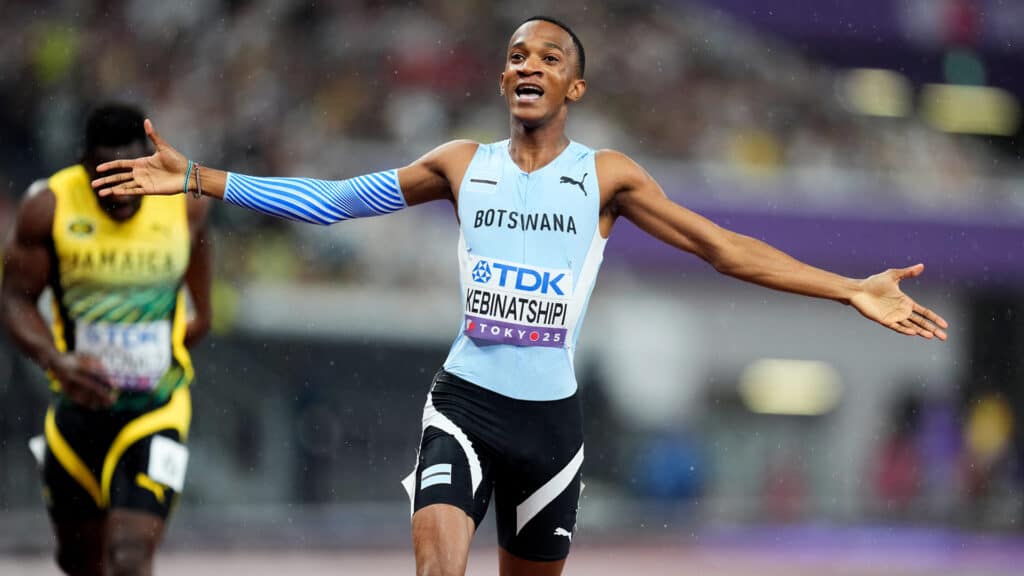
Newsletter Subscribe
Enter your email address below and subscribe to our newsletter

Enter your email address below and subscribe to our newsletter

Botswana’s Collen Kebinatshipi stormed to a 400m national record and world-leading time in Tokyo 2025, cementing his place as one of the 10 fastest men in history.
Botswana’s Busang Collen Kebinatshipi delivered a career-defining performance at the World Athletics Championships in Tokyo 2025, storming to victory in the men’s 400m final with a national record and the fastest time in the world this season.
His triumph not only etched his name into the record books but also underscored Botswana’s growing reputation as a global athletics powerhouse. Most importantly, Kebinatshipi became Botswana’s first-ever men’s world champion in athletics, a milestone that elevates his victory beyond sport into the realm of national history.

On a humid night in Tokyo, Kebinatshipi exploded out of the blocks and ran with unmatched composure. By the 300m mark, it was clear he was pulling away from a field stacked with world-class talent. Crossing the finish line, the scoreboard confirmed the historic moment: a personal best, a national record, and the world lead.
The victory adds to Botswana’s growing legacy in sprinting, following in the footsteps of Isaac Makwala and Baboloki Thebe. For Botswana, a country of just over 2.4 million people, such global achievements amplify its presence on the international stage.

Kebinatshipi’s record-setting performance is more than just a medal. It has major business and political implications:
Kebinatshipi’s success is a case study in the potential of African sports ecosystems:
Kebinatshipi’s Tokyo triumph is not just a fleeting moment of glory. It signals the beginning of a new era for Botswana’s athletics. His achievement inspires the next generation, underscores the need for strategic sports investment, and places Botswana firmly on the global athletics map.
For businesses, policymakers, and sports enthusiasts alike, Kebinatshipi’s victory is both a celebration and a wake-up call. The question is clear: will Botswana capitalize on this moment to build a sustainable sports economy?